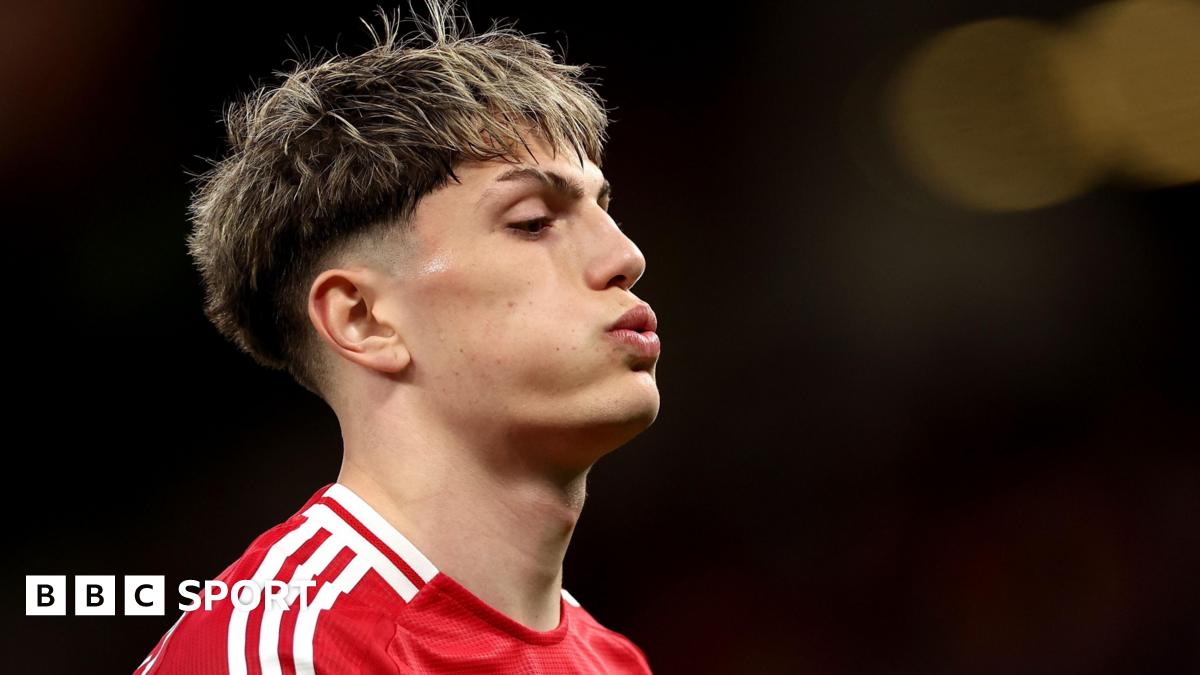
Chelsea's potential acquisition of Alejandro Garnacho presents a fascinating case study in squad depth optimisation and tactical integration. The reported discontent at Manchester United, coupled with Chelsea's persistent interest, suggests an opportunity for both clubs to address specific needs. But does this transfer make sense beyond just headlines?
Let's address the elephant in the room: Chelsea's attacking woes. Last season, despite spending big, their goal-scoring record was… underwhelming. The data paints a clear picture: creativity and clinical finishing were sorely lacking. Garnacho, at 21, offers a dynamic presence on the wing, but how does his profile align with Chelsea's problems?
Here's where the 'problem-solution' narrative kicks in. Chelsea's current wing options, while talented, often lack the raw pace and directness that Garnacho possesses. Consider his Premier League stats: 16 goals. While not earth-shattering, it's a respectable return for a player often used sporadically. A deeper dive reveals his dribbling success rate is notably higher than many of Chelsea's current attackers. This suggests he could unlock stubborn defences and provide much-needed penetration.
However, it's not all sunshine and roses. Garnacho's decision-making in the final third can be inconsistent. His pass completion rate is lower compared to more established wingers. This highlights a potential area for improvement under a different coaching setup. Could Chelsea's training regime hone his skills and unlock his full potential? That's the million-dollar question (or, in this case, the £60 million question).
The tactical fit also warrants scrutiny. Chelsea's system often relies on intricate passing patterns and positional interchange. Garnacho's direct style could either disrupt this flow or add a valuable dimension. It hinges on whether the coaching staff can integrate him effectively without sacrificing the team's overall structure. It's a high-risk, high-reward scenario.
Squad depth implications are significant. Adding Garnacho would increase competition for places, potentially pushing existing players to elevate their game. But it also raises the risk of creating an unbalanced squad, with too many players vying for limited opportunities. This requires careful management and a clear vision of how each player contributes to the overall tactical plan.
Man Utd's perspective is equally intriguing. Amorim's reported willingness to let Garnacho leave suggests a clash of personalities or a difference in tactical philosophies. This raises questions about team harmony and the importance of aligning players' ambitions with the manager's vision. Sometimes, even a talented player can become a disruptive influence if their needs aren't met.
Ultimately, the success of this transfer hinges on several factors: Garnacho's willingness to adapt, Chelsea's ability to integrate him tactically, and the overall squad dynamics. The statistics provide a valuable starting point, but the human element will ultimately determine whether this deal proves to be a shrewd piece of business or a costly mistake. Because football is rarely as simple as crunching the numbers, right?